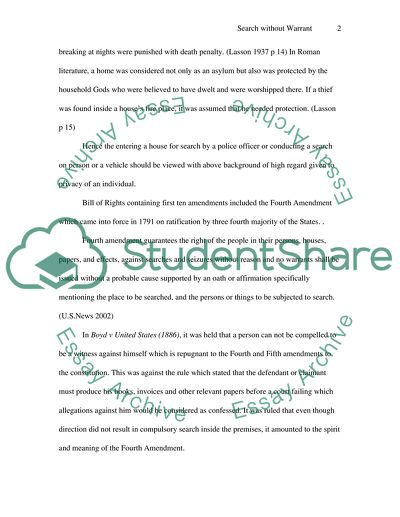Cite this document
(“Discuss at least four situations in which a law enforcement officer Essay”, n.d.)
Discuss at least four situations in which a law enforcement officer Essay. Retrieved from https://studentshare.org/miscellaneous/1547287-discuss-at-least-four-situations-in-which-a-law-enforcement-officer-may-conduct-a-search-without-first-obtaining-a-warrant-explain-when-those-exceptions-apply
Discuss at least four situations in which a law enforcement officer Essay. Retrieved from https://studentshare.org/miscellaneous/1547287-discuss-at-least-four-situations-in-which-a-law-enforcement-officer-may-conduct-a-search-without-first-obtaining-a-warrant-explain-when-those-exceptions-apply
(Discuss at Least Four Situations in Which a Law Enforcement Officer Essay)
Discuss at Least Four Situations in Which a Law Enforcement Officer Essay. https://studentshare.org/miscellaneous/1547287-discuss-at-least-four-situations-in-which-a-law-enforcement-officer-may-conduct-a-search-without-first-obtaining-a-warrant-explain-when-those-exceptions-apply.
Discuss at Least Four Situations in Which a Law Enforcement Officer Essay. https://studentshare.org/miscellaneous/1547287-discuss-at-least-four-situations-in-which-a-law-enforcement-officer-may-conduct-a-search-without-first-obtaining-a-warrant-explain-when-those-exceptions-apply.
“Discuss at Least Four Situations in Which a Law Enforcement Officer Essay”, n.d. https://studentshare.org/miscellaneous/1547287-discuss-at-least-four-situations-in-which-a-law-enforcement-officer-may-conduct-a-search-without-first-obtaining-a-warrant-explain-when-those-exceptions-apply.


